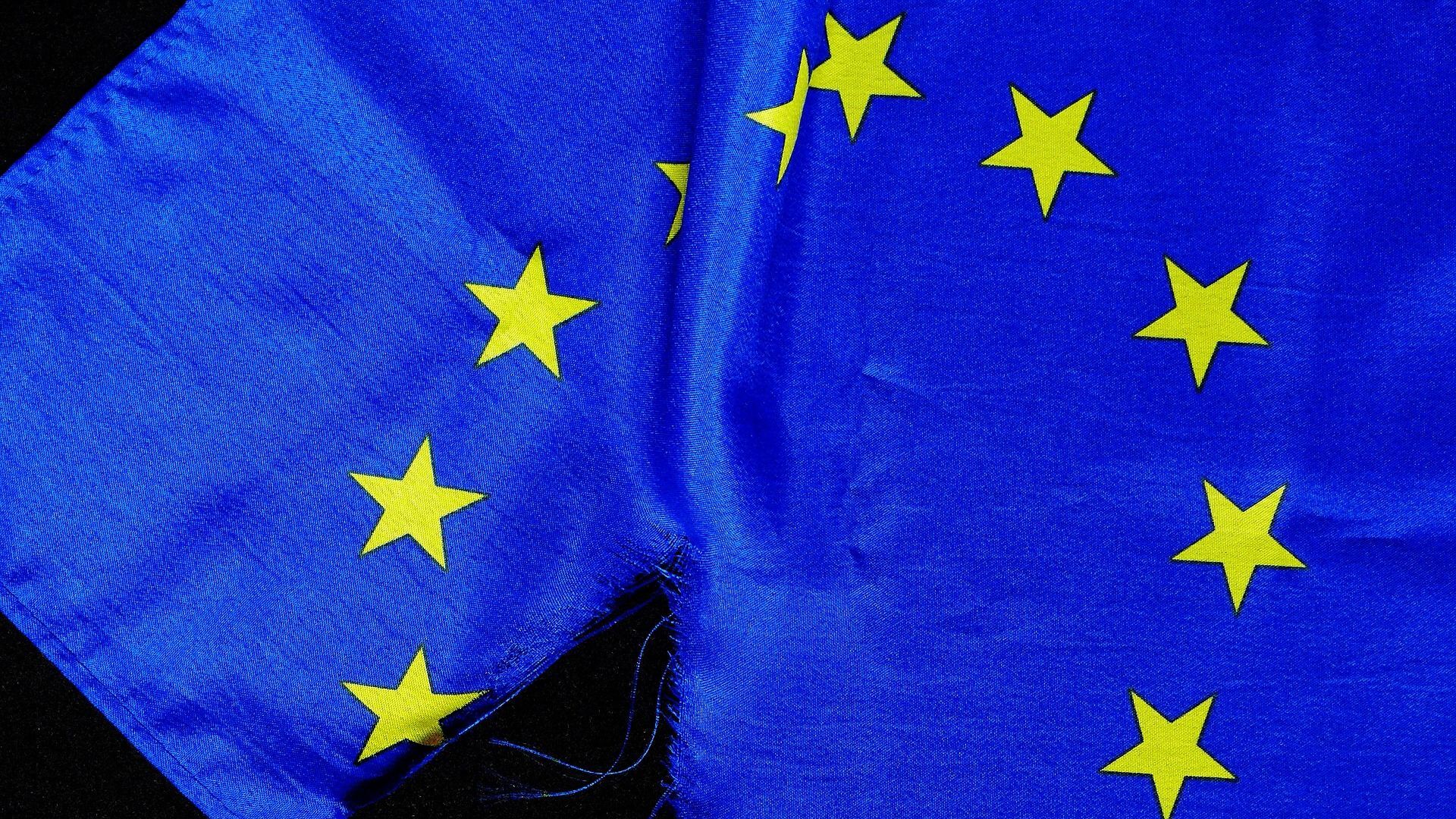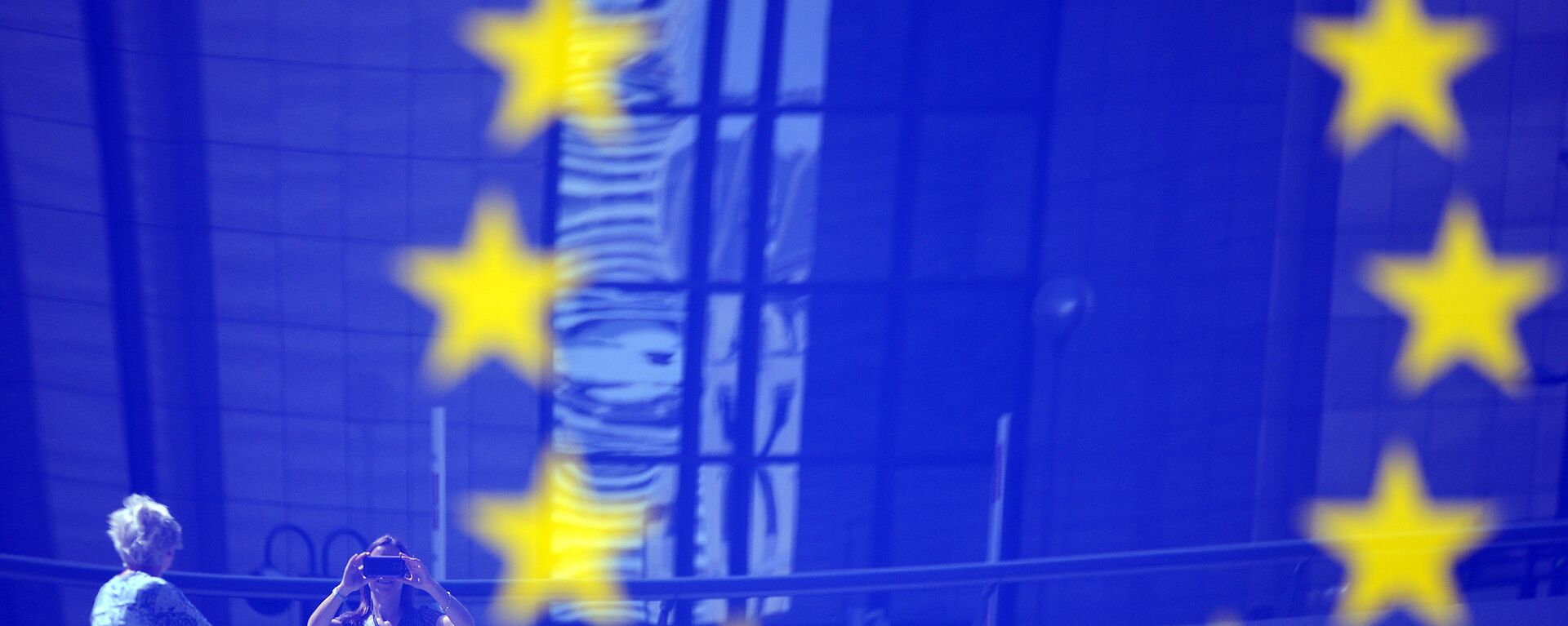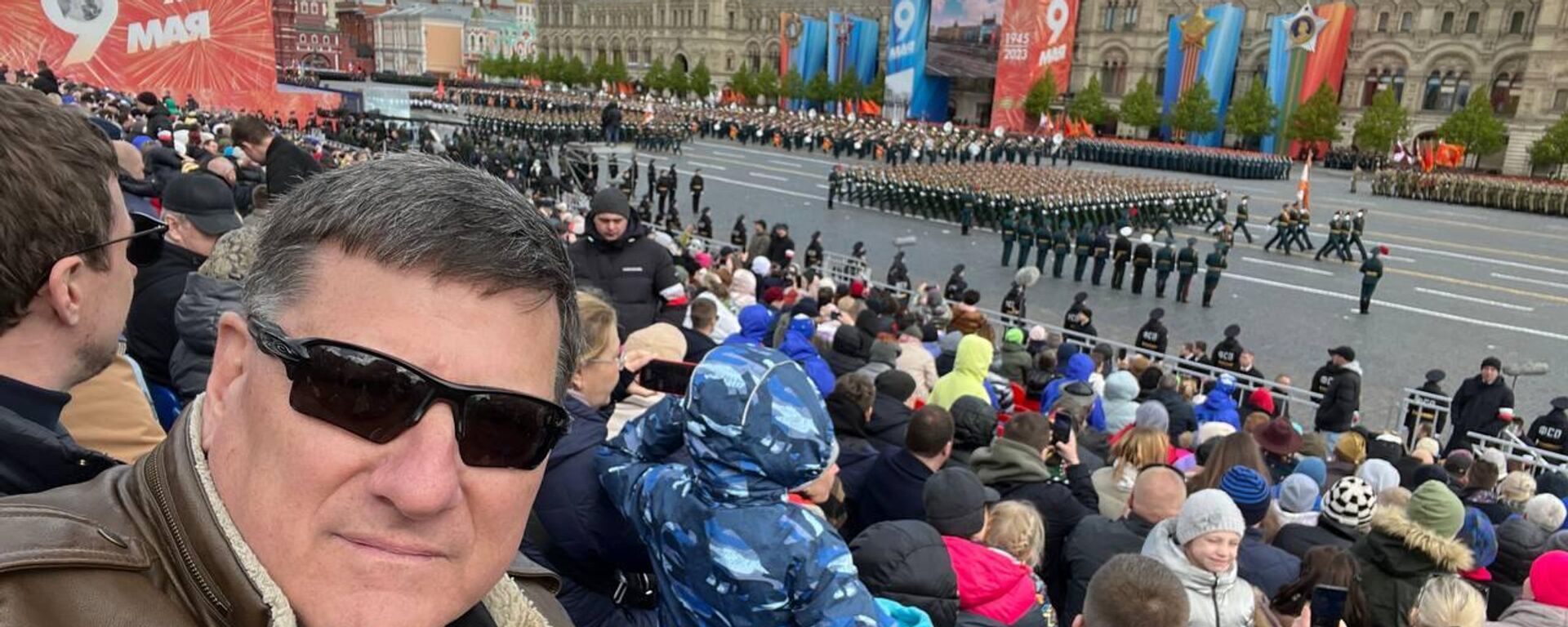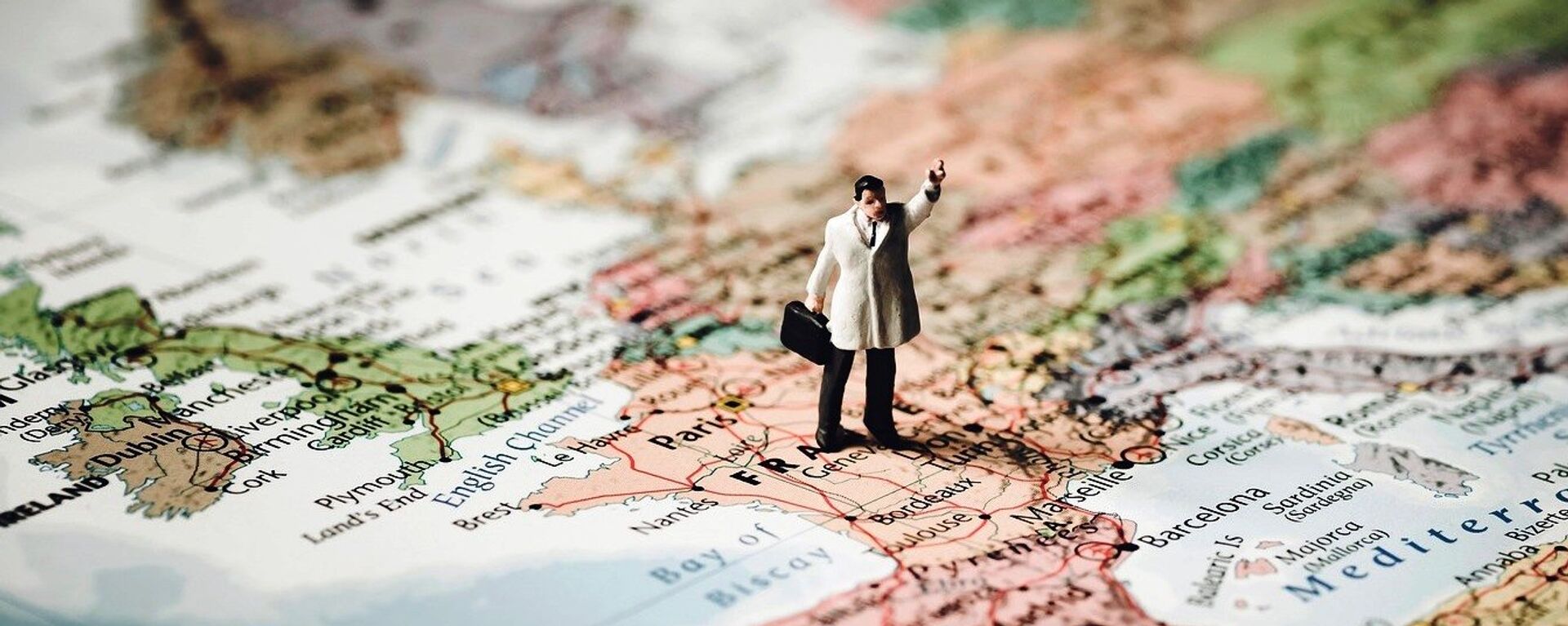https://sputnikglobe.com/20230608/eu-fails-to-agree-new-sanctions-against-russia-as-economic-pinch-takes-toll-1111005947.html
EU Fails to Agree New Sanctions Against Russia as Economic Pinch Takes Toll
EU Fails to Agree New Sanctions Against Russia as Economic Pinch Takes Toll
Sputnik International
The European Union and its US allies slapped crushing sanctions on Moscow in early 2022 after the long-smoldering Donbass crisis escalated into a full-blown NATO-Russia proxy war in Ukraine.
2023-06-08T15:50+0000
2023-06-08T15:50+0000
2023-06-08T15:51+0000
economy
russia
european union (eu)
nato
sanctions
restrictions
russian economy under sanctions
us sanctions
eu sanctions
western sanctions
https://cdn1.img.sputnikglobe.com/img/107750/22/1077502211_0:0:1920:1080_1920x0_80_0_0_44924eed4a22b1167789337f197c5ba4.jpg
EU countries failed again to agree on an 11th package of sanctions against Russia in talks Wednesday, with negotiations expected to continue next week, four diplomats with direct knowledge of the situation have told European media.The United States has accused five countries – Armenia, Georgia, Kazakhstan, Turkiye and the United Arab Emirates, of being particular egregious violators of the West’s sanctions policy against Moscow.On Wednesday, State Department sanctions coordinator Jim O’Brien complained that European companies have sold vast quantities of goods to third parties which then resold them to Russia, enabling Moscow to “reimport certain key categories of electronics at about pre-war levels.”Sanctions BluntedThe EU’s anti-circumvention restrictions resemble the ‘secondary sanctions’ regularly used by the United States, which threatens to target third countries doing business with America’s adversaries. Washington used such sanctions for decades against countries like Iran, Cuba and North Korea. However, the restrictions faltered last year after being applied against Russia, not only failing to achieve their goal of collapsing the Russian economy, but prompting most of the world outside the US and Europe to reject efforts to isolate Russia.The negotiations on the EU’s 11th package of sanctions comes after the approval of the 10th package in February, with those restrictions including entry bans, export bans, and asset freezes.The European Union has now slapped over 1,500 sanctions on Russia since February 2022. Russia is by far the most heavily-sanctioned nation on Earth, with its 13,260+ total restrictions more numerous than all Western sanctions on Iran, Syria, North Korea, Belarus, Venezuela and Myanmar combined.But the sanctions have largely failed to achieve their objective, with Russia’s GDP resuming growth in 2023 after a 2.5 percent contraction in 2022, and Moscow working intensively to expand trade ties with China, India, Africa, the Middle East and Latin America after being frozen out of Western markets.Meanwhile, European nations have faced recession and the threat of deindustrialization amid rising energy and food prices after a halt in imports of Russian oil, gas, coal and fertilizers left many industries uncompetitive against Asian and US counterparts.Russia warned about precisely such an eventuality in the spring of 2022, when President Putin cautioned his EU counterparts that restrictions on Russian energy purchases at Washington’s behest would constitute a form of "economic suicide."
https://sputnikglobe.com/20230601/stupid-mistake-for-eu-to-sanction-russias-nuclear-energy-industry---oliver-stone-1110849672.html
https://sputnikglobe.com/20230601/scott-ritter-sanctions-against-russia-failed-i-saw-it-firsthand--1110837966.html
https://sputnikglobe.com/20230531/chomsky-europe-may-face-decline-deindustrialization-by-staying-in-us-dominated-system-1110807834.html
russia
Sputnik International
feedback@sputniknews.com
+74956456601
MIA „Rossiya Segodnya“
2023
News
en_EN
Sputnik International
feedback@sputniknews.com
+74956456601
MIA „Rossiya Segodnya“
Sputnik International
feedback@sputniknews.com
+74956456601
MIA „Rossiya Segodnya“
sanctions, russia, restrictions, european union, eu, secondary sanctions, economy, economics, russia under sanctions, who wants to sanctions russia, are sanctions working, european sanctions on russia
sanctions, russia, restrictions, european union, eu, secondary sanctions, economy, economics, russia under sanctions, who wants to sanctions russia, are sanctions working, european sanctions on russia
EU Fails to Agree New Sanctions Against Russia as Economic Pinch Takes Toll
15:50 GMT 08.06.2023 (Updated: 15:51 GMT 08.06.2023) The European Union and its US allies slapped crushing sanctions on Moscow in early 2022 after the long-smoldering Donbass crisis escalated into a full-blown NATO-Russia proxy war in Ukraine. The strategy backfired, thrusting the EU into an unprecedented energy crisis and threatening the bloc with large-scale deindustrialization.
EU countries failed again to agree on an
11th package of sanctions against Russia in talks Wednesday, with negotiations expected to continue next week, four diplomats with direct knowledge of the situation have
told European media.
The proposed restrictions, said to be focused on efforts by Russia and its partners to circumvent earlier enacted sanctions, are reportedly being held up by Hungarian and Greek indignation amid efforts to label their national companies operating in Russia as “war sponsors.” France and Germany have also reportedly asked for measures to soften the proposed sanctions amid fears of the impact they could have on ties with affected countries besides Russia.
The United States has accused five countries – Armenia, Georgia, Kazakhstan, Turkiye and the United Arab Emirates, of being particular egregious violators of the West’s sanctions policy against Moscow.
On Wednesday, State Department sanctions coordinator Jim O’Brien complained that European companies have sold vast quantities of goods to third parties which then resold them to Russia, enabling Moscow to “reimport certain key categories of electronics at about pre-war levels.”
The EU’s anti-circumvention restrictions resemble the ‘secondary sanctions’ regularly used by the United States, which threatens to target third countries doing business with America’s adversaries. Washington used such sanctions for decades against countries like Iran, Cuba and North Korea. However, the restrictions faltered last year after being applied against Russia, not only failing to achieve their goal of collapsing the Russian economy,
but prompting most of the world outside the US and Europe to reject efforts to isolate Russia.
The negotiations on the EU’s 11th package of sanctions comes after the approval of the 10th package in February, with those restrictions
including entry bans, export bans, and asset freezes.
The European Union has now slapped over 1,500 sanctions on Russia since February 2022. Russia is by far the
most heavily-sanctioned nation on Earth, with its 13,260+ total restrictions more numerous than all Western sanctions on Iran, Syria, North Korea, Belarus, Venezuela and Myanmar combined.
But the sanctions have
largely failed to achieve their objective, with Russia’s GDP resuming growth in 2023 after a 2.5 percent contraction in 2022, and Moscow working intensively to expand trade ties with China, India, Africa, the Middle East and Latin America after being frozen out of Western markets.
Meanwhile, European nations have faced
recession and the threat of
deindustrialization amid rising energy and food prices after a halt in imports of Russian oil, gas, coal and fertilizers left many industries uncompetitive against Asian and US counterparts.
Russia warned about precisely such an eventuality in the spring of 2022, when President Putin
cautioned his EU counterparts that
restrictions on Russian energy purchases at Washington’s behest would constitute a form of "economic suicide."





